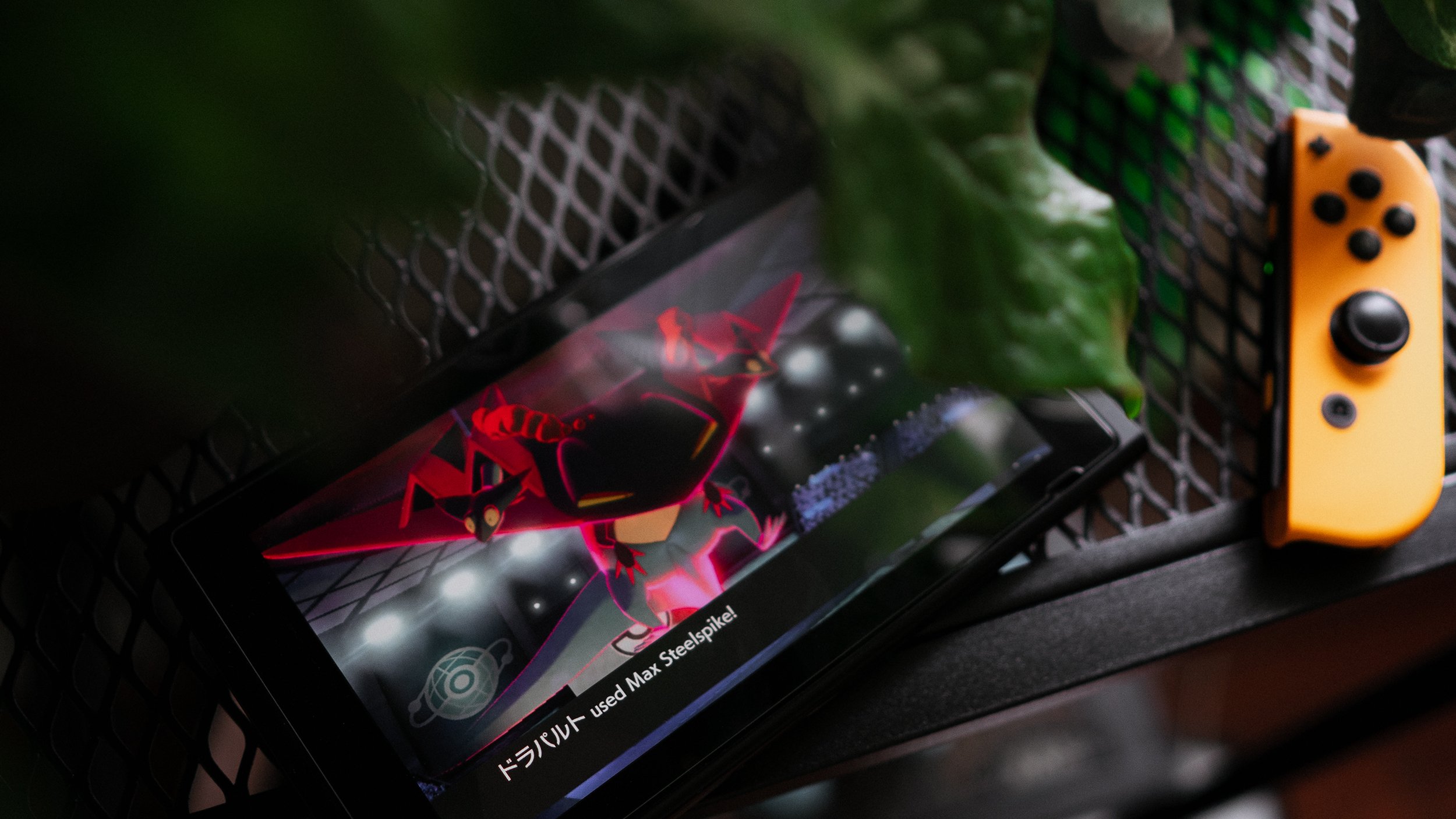
Team Playstyle and Pace
6min 3sec read
Learn why the time a team takes to finish games is important.
Written by Wolfe Glick
Teambuilding / Abstract Building Blocks
We describe a team's playstyle in terms of how the Pokémon on the team affect the rate at which battles progress. Battles can have different paces: a fast-paced battle features lots of KOs and is over in a few turns, and a slow-paced battle is a grindfest where both players spend a lot of effort positioning and less time dealing damage. Certain Pokémon lend themselves well to either a fast or slow pace.
Generally, a team falls into one of three categories of team playstyle based on its pace. These terms should be used to help you think about how a team achieves its goals. Think of these terms not as a roadmap for where your team should go next; but a toolkit to analyze how your team will function in battle.
Hyper Offense: These teams tend to use fast but frail Pokémon to overwhelm the opponent. They typically value speed control and damage output over defensive switches and defensive typing. Hyper offense teams want to do a lot of damage fast- for a game to go beyond 8 turns would be unusual. Because of this, they are often prone to big momentum swings. They typically excel when they are in the driver's seat, and will collapse quickly if they end up out of position.
Hyper offense teams tend to be more useful in best of 1 settings, where your opponent has little time to react to how your team applies pressure. They also tend to perform better early in a format before an established metagame has formed; teams at the beginning of the format tend to be more volatile, and dealing powerful damage quickly can be a solid strategy when other players are still figuring the format out.
Bulky Offense: This style of team focuses on balance - they want Pokémon with good defensive typing and good stats to allow them to maneuver their Pokémon around safely, but not at the expense of their damage output. Bulky offense teams value both offensive capabilities and making use of synergistic defensive typing. They’ll often have multiple ways of influencing the board state with speed control and other disruptive moves. It would be typical for a game with bulky offense teams to last between 8 and 12 turns.
These teams tend to be consistent, and often use Pokémon that have been established as good Pokémon in a format. This is the playstyle that is most present in the teams that perform highly at tournaments, especially at the World Championships. This is most likely because of the control that balancing offense and defense provides.
Defense/Full Defense/Hyper Defense: Some players (such as myself between 2013 and 2016) prefer to play a more defensive style. These teams tend to focus significantly on the defensive capabilities of their Pokémon, and may employ tactics such as recovery and setup (especially defense enhancing setup moves such as Calm Mind) to outlast their opponents. Lowering the opponent’s offensive capabilities with moves such as Snarl, Will-O-Wisp, and Light Screen allow defensive teams to control the pace of the game and disrupt their opponents’ offensive capabilities. Typically these teams tend to take 10-15 turns to win a game.
They don’t often perform as well as other archetypes at tournaments, though they have been known to do well on occasion. Defensive teams are often passive, and it is challenging to fully halt your opponent’s offense, especially since they will have two Pokémon on the field most of the game. Furthermore, the in game timer at events means that defensive teams are more likely than the other styles to run out of time before winning the game. Going to time in a tournament is not advisable, as you're not always guaranteed to be up on tiebreakers, and even if you win, long battles are draining and you’ll have less rest between rounds than your competitors.
How do I identify the playstyle of my team?
Here are a few questions to ask yourself:
How many turns does my team take to win on average? If your games are often over quickly or are drawn-out, that's the easiest way to tell your team's pace. Can you figure out what factors are contributing to why games are ending quickly or dragging on?
How many attacking moves do I have, and how hard do they hit? If you don't have many attacking moves, your games are going to take a long time. If you struggle to take knockouts decisively, your team may have a slower pace.
Are your Pokémon frail? What are their HP, Defense, and Special Defense stats like? Can they survive attacks? Is switching in your Pokémon generally easy and low-risk?
How many defensive options does your team have? A team with very few defensive tools (Intimidate, Burn, Reflect/Light Screen, healing moves, other utility moves) is likely to be more offensive.
What do these categories mean to me, the teambuilder?
You've identified that your team falls into one of the three categories– either because of your experience in battles, or because of advice you received from another player. The question that you have to answer at this point is: are you comfortable with the pace that your team plays at? If so, great: being in your comfort zone is a good thing. If not, what needs to change on your team?
For example, I usually prefer for my teams to be bulky offense teams. I value both being able to switch and being able to deal damage at appropriate times. If I were to realize my team played in a more hyper offensive style, I would maybe want to take a step back and think about whether I like how the team plays and whether its goals align with what I think are good practices.
What Playstyle Should I Use?
How do you like to play VGC? If you have an answer, great: these terms can be helpful to diagnose whether you agree with the goals of the team. If you don't have an answer: try some teams out, and keep track of how the pace of each team feels to you.
As mentioned before, we generally prefer bulky offense teams as we feel that they are the most consistent and give us the most control over how the battle goes while being the least affected by odds and chance. However, players have found success with all types of teams; our way of battling is certainly not the only way. We encourage you to try different styles of teams and find what works best for you. And don’t forget that these decisions aren’t set in stone! You can always be flexible and step outside your comfort zone when it comes to your teams.
Wrapping Up
As teambuilders, we spend a lot of time thinking about how our team will function before we even battle with it. Thinking about your team in terms of its playstyle, as defined in this article– hyper offense, bulky offense, or full defense– can help you identify how your Pokémon will work together, what your team's goals will be, and whether battles will play out in a way that is comfortable and natural to you.

